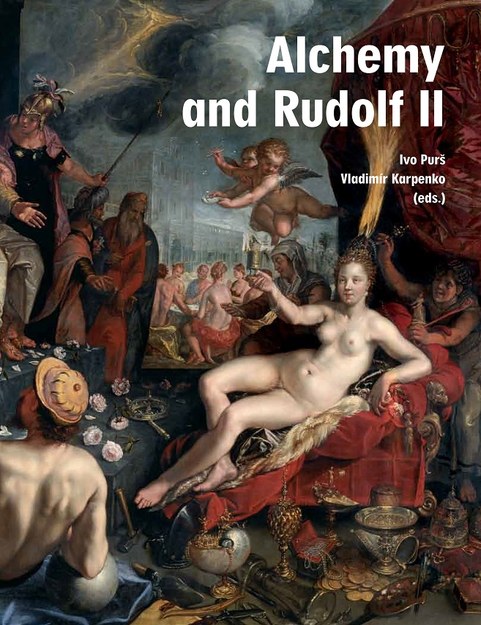New Book: Alchemy and Rudolf II, Ivo Purš, Vladimír Karpenko (eds.)

In the current image of “Rudolfíne alchemy”, as it has been developed by Czech and German historiography in the 19th century and first half of the 20th century, the legends were often mixed with the historically provable facts. The situation first started to change from the 1970s, when historians not only focused on Mannerism and Rudolfine fine arts, but also to other areas of Rudolfine culture including alchemy. This interest was naturally associated with a change of perspective on alchemy itself, which ceased to be regarded as a mere precursor of modern chemistry and began to be studied as a complex and important cultural-historical and social phenomenon linked with other areas of social and economic life: with medicine, mining and metallurgy as well as with religion, fine arts, and aristocratic representation. The submitted publication deals with activities that were directly supported by Emperor Rudolf II and also those that were developed in the wider social circle connected with the imperial court. This circle did not extend only to the Lands of Bohemian Crown, but also into Austria and several parts of the Holy Roman Empire. In terms of time, the given theme is primarily delimited to the time of the reign of Rudolf II between 1576 and 1611, but to understanding the context it is necessary to point to the development of alchemical research in Central Europe roughly from the early 16th century, just as it is important to monitor developments in the aftermath of the 17th century.
The emperor’s alchemical interests were an expression of the continuity of the interest of the Habsburg ruling dynasty in natural sciences; after all, they were shared at that time also by a number of rulers in the Holy Roman Empire and in the Bohemian Kingdom. It is necessary to emphasize that “Rudolfine alchemy” had exceptionally well prepared ground in the Lands of Bohemian Crown from the previous development of this learning, which was supported by important Bohemian aristocratic families. Alchemical research in Bohemia and Moravia did not disappear with Rudolf’s death or as the consequences of the defeat of the Estates’ uprising and subsequent events of the Thirty Years’ War but continued albeit with weakening intensity still for the greater part of the 17th century.
Document Actions